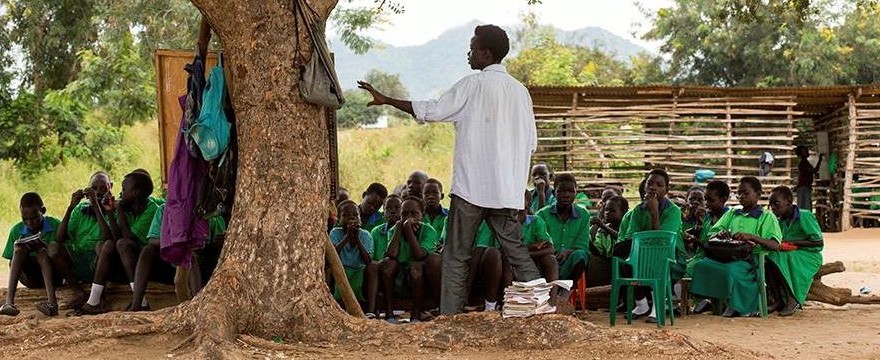This article was authored by the heads of UNESCO, ILO, UNICEF, UNDP and Education International on the occasion of World Teachers’ Day, 5 October 2014. The authors argue that teachers play an important role in society and should be supported with decent contracts and salaries and proper training.
An education system is only as good as its teachers. Teachers are essential to universal and quality education for all: they are central to shaping the minds and attitudes of the coming generations to deal with new global challenges and opportunities. Innovative, inclusive and results-focused teaching is crucial for 2015 and beyond if we are to provide the best possible opportunities for millions of children, youth and adults worldwide.
In many countries, the quality of education is undermined by a deficit of teachers. An extra 1.4 million teachers are needed in classrooms across the world to achieve universal primary education by 2015, and 3.4 million additional teachers will be needed by 2030, according to the UNESCO Institute for Statistics.
Added to the challenge of numbers is the issue of quality. All too often, teachers work without resources or proper training. Equipping teachers to succeed is therefore a priority. This means rigorous training, better conditions for employment, quality-based teacher recruitment, thoughtful deployment and attracting new teachers and talents, especially young people and women from under-represented communities.
Reflecting on the lead-up to, and looking beyond, 2015, the Global Thematic Consultation on Education in the Post-2015 Development Agenda aptly sums up the essentials for supporting teachers’ effectiveness as follows:
- decent conditions of employment, including appropriate contracts and salaries, and prospects for career progression and promotion;
- good conditions in the work environment, based on creating school contexts that are conducive to teaching;
- high-quality pre-and in-service training for teachers, based on respect for human rights and the principles of inclusive education;
- effective management, including teacher recruitment and deployment.
Moreover, quality teaching depends on teachers enjoying basic rights, such as protection from violence, academic freedom and the freedom to join independent unions. Protecting teachers’ rights also helps them to promote the safety and security of the girls and boys in their charge; we must insist that schools remain a protective space for children and teachers.
Children and young people are at the heart of society. A good education enables them, as global citizens, to respond to the challenges of a complex world, and contribute to building peaceful and sustainable communities. The teachers of today and tomorrow need the skills, knowledge and support that will enable them to meet the diverse learning needs of every girl and boy. We must remember that teachers are an investment for the future.
The international community and governments must stand united to support teachers and quality education worldwide, and especially in those countries where the highest number of out-of-school children exists. We invite you to join us in spreading the message that 5 October is World Teachers’ Day and that investing in teachers means investing in the future.
The authors are Irina Bokova, UNESCO Director-General; Guy Ryder, ILO Director-General; Anthony Lake, UNICEF Executive Director; Helen Clark, UNDP Administrator; and Fred van Leeuwen, General Secretary of Education International.
Photo: A school at Kapuri Payam, Central Equatoria (UNMISS / JC McIlwaine)
The views expressed in ‘opinion’ articles published by Radio Tamazuj are solely those of the writer(s). The veracity of any claims made are the responsibility of the author(s), not Radio Tamazuj.




